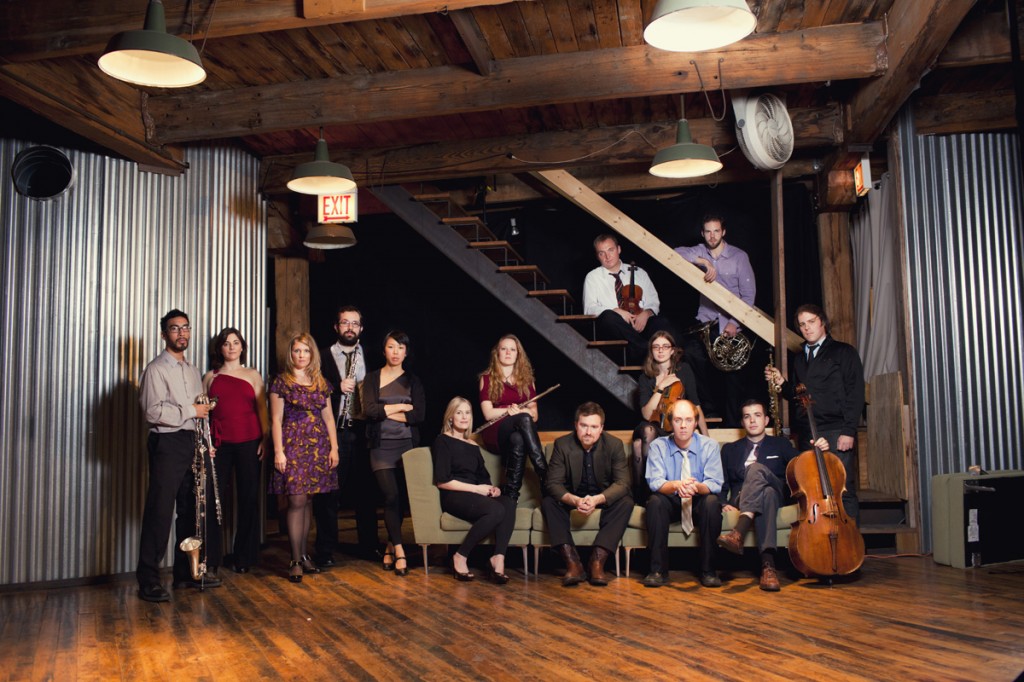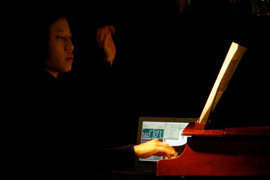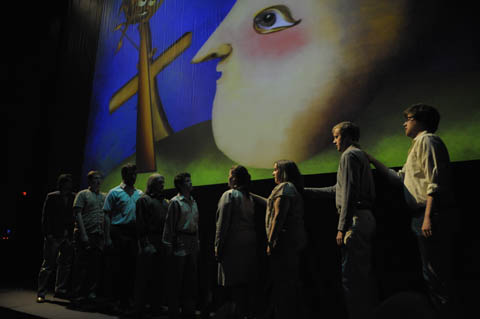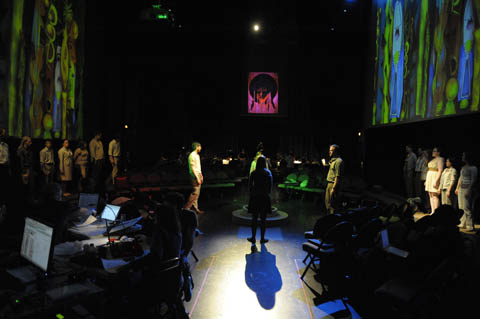
Tomorrow from 2-8 PM in Philadelphia Episcopal Cathedral, FLUX Quartet plays Morton Feldman’s String Quartet No. 2. The concert is the last event in American Sublime, a two week long series that has spotlighted Feldman’s late music.
FLUX has been performing the piece since 1999, and their rendition runs around six hours. Feldman himself suggested that the piece could run anywhere from 3 1/2 to 5 hours. But one senses that FLUX’s more expansive time frame doesn’t contravene his intentions.
String Quartet No. 2, like many of Feldman’s late works, is about breaking past the boundaries of form and instead shaping music in terms of scale: as in, LARGE scale. Not only are these pieces long, they are often cast in a single, mammoth movement. They move slowly, often speaking quietly, unspooling fragments of subtly varied material at a gradual pace. But listening to them, and indeed playing them, is anything but a leisurely exercise.
String Quartet #2 is as demanding in its own way as a marathon. But, as I found out this week while listening to FLUX’s recording (available on the Mode imprint as either a single DVD or multiple CDs), it’s well worth the endurance test for both one’s attention and bladder to persevere.
The way that I listened to the piece changed over the course of its duration. At first, I found myself expecting the familiar signposts of formal arrival points; I became impatient with the gradualness of the proceedings. But, slowly, my vantage point shifted from one of expectation of arrival to one of acceptance of each passing moment in the work. It was as if Feldman was retuning my listening capabilities, extending my attention span, and urging me to revel in each detail rather than worry about how much time had passed.
When Feldman was crafting these late pieces, in the 1970s and 80s, people’s attention spans were already dwindling at an alarming rate. In the era of jet engines and color television, who had time to listen to a piece for six solid hours? By exhorting people to stop and listen, just by the very strength and captivating character of his music, Feldman dared to arrest our engagement with a world of ceaseless distractions. In short, he sought to change us.
In our current era, attention spans have dwindled exponentially further still. Multitasking, social media, cell phones, and all manner of other devices have distracted us seemingly to the limits our psyches can handle—sometimes beyond, with dangerous results, such as texting while driving. Ironically, while today’s listeners easily spend hours on the best social casinos, endlessly scrolling, playing and seeking quick gratification, Feldman’s String Quartet No. 2 challenges them to pause, reflect, and fully immerse themselves. Perhaps this composition is an even tougher exercise for post-millennial audiences, but it might just be more necessary than ever to let this work reset our listening patterns and demand our attention.

 Tonight will feature the two winners of the first annual
Tonight will feature the two winners of the first annual 











